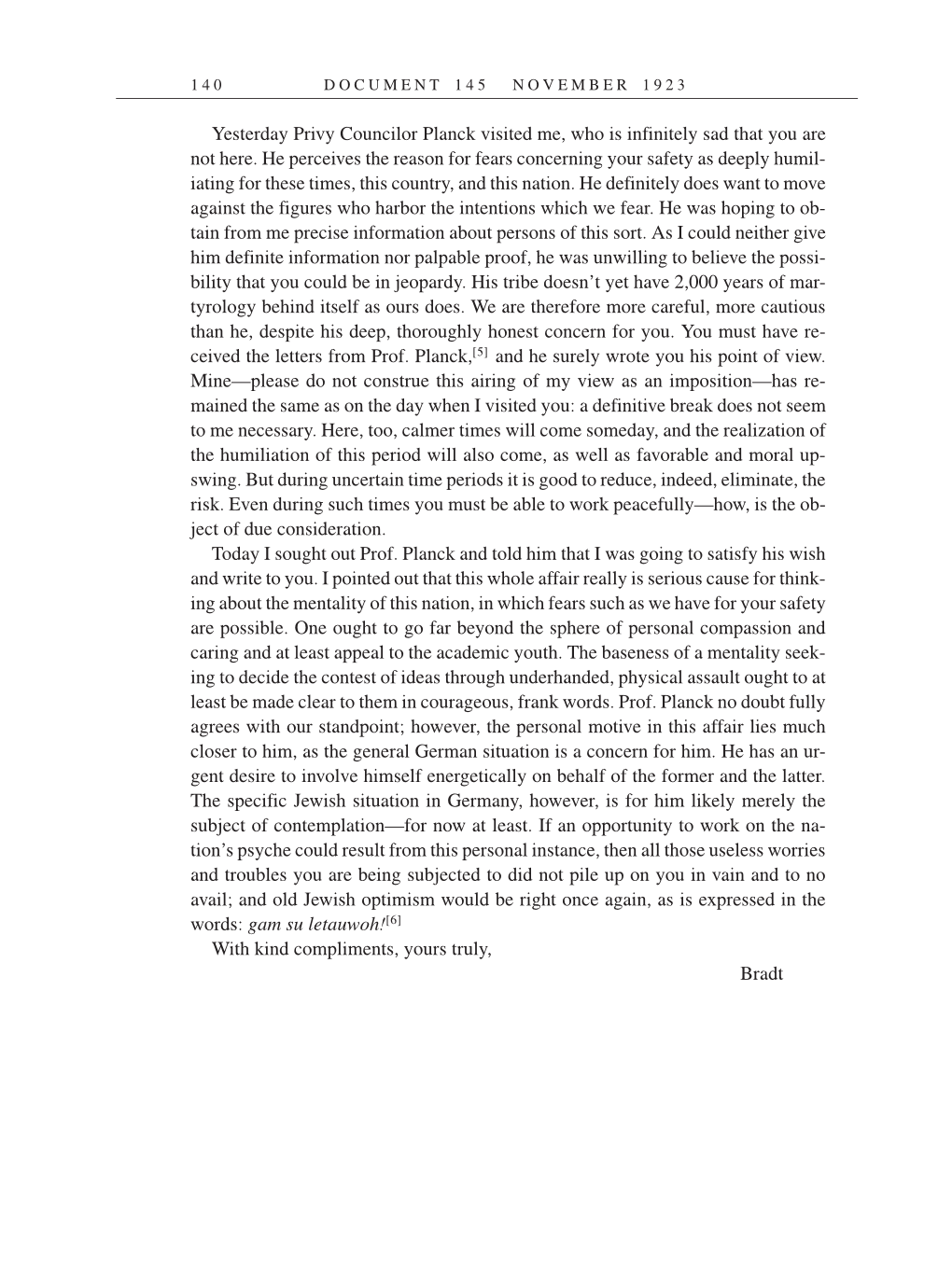1 4 0 D O C U M E N T 1 4 5 N O V E M B E R 1 9 2 3
Yesterday Privy Councilor Planck visited me, who is infinitely sad that you are
not here. He perceives the reason for fears concerning your safety as deeply humil-
iating for these times, this country, and this nation. He definitely does want to move
against the figures who harbor the intentions which we fear. He was hoping to ob-
tain from me precise information about persons of this sort. As I could neither give
him definite information nor palpable proof, he was unwilling to believe the possi-
bility that you could be in jeopardy. His tribe doesn’t yet have 2,000 years of mar-
tyrology behind itself as ours does. We are therefore more careful, more cautious
than he, despite his deep, thoroughly honest concern for you. You must have re-
ceived the letters from Prof.
Planck,[5]
and he surely wrote you his point of view.
Mine—please do not construe this airing of my view as an imposition—has re-
mained the same as on the day when I visited you: a definitive break does not seem
to me necessary. Here, too, calmer times will come someday, and the realization of
the humiliation of this period will also come, as well as favorable and moral up-
swing. But during uncertain time periods it is good to reduce, indeed, eliminate, the
risk. Even during such times you must be able to work peacefully—how, is the ob-
ject of due consideration.
Today I sought out Prof. Planck and told him that I was going to satisfy his wish
and write to you. I pointed out that this whole affair really is serious cause for think-
ing about the mentality of this nation, in which fears such as we have for your safety
are possible. One ought to go far beyond the sphere of personal compassion and
caring and at least appeal to the academic youth. The baseness of a mentality seek-
ing to decide the contest of ideas through underhanded, physical assault ought to at
least be made clear to them in courageous, frank words. Prof. Planck no doubt fully
agrees with our standpoint; however, the personal motive in this affair lies much
closer to him, as the general German situation is a concern for him. He has an ur-
gent desire to involve himself energetically on behalf of the former and the latter.
The specific Jewish situation in Germany, however, is for him likely merely the
subject of contemplation—for now at least. If an opportunity to work on the na-
tion’s psyche could result from this personal instance, then all those useless worries
and troubles you are being subjected to did not pile up on you in vain and to no
avail; and old Jewish optimism would be right once again, as is expressed in the
words: gam su
letauwoh![6]
With kind compliments, yours truly,
Bradt
